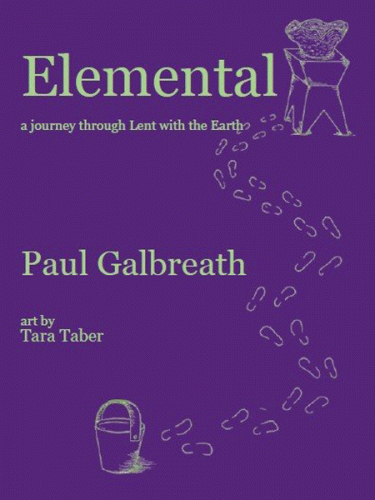The Rev. Dr. Paul Galbreath offers up a thoughtful biblical approach during a Presbyterians for Earth Care webinar
April 27, 2023

The Rev. Dr. Paul Galbreath
Speaking to a Presbyterians for Earth Care audience during a recent webinar, the Rev. Dr. Paul Galbreath was able to help viewers read biblical texts from the perspective of the Earth.
Galbreath, Professor of Theology at Union Presbyterian Seminary’s Charlotte campus, wrote the 2022 book “Elemental: A Journey through Lent with the Earth.” His hourlong talk to PEC can be viewed here.
Most of the Bible, as anyone who has ever read The Green Bible can attest, has something to say about the Earth, according to Galbreath. “It’s a radical jolt to remind us of the central place of Creation through the sacred texts that we hold at the center of our assemblies,” Galbreath said. Because the Christian faith is incarnational, “to do the work of theology is to take seriously the role of Creation in all that we do.” The problem is that we quickly encounter the gulf between materiality and spirituality. It’s our job, Galbreath said, “to find ways that reconnect spirituality and materiality.”
To do this means returning often to Scripture, “asking ourselves questions about what people in biblical times saw,” Galbreath said.
“I’m not trying to read 21st-century perspectives back into biblical texts. The world has changed,” Galbreath said. “But I am trying to be sensitive of the ways people in biblical texts related to Creation and the Earth around them. It’s clear to me that people in biblical times carried with them a great deal of awareness of the Earth, more than we cultivate in our lives. They were aware they were at the mercy of the elements in nature. What you had to eat was dependent on what was in the market, not what was flown in from Peru.”
 As a result, religious celebrations in ancient Judaism and early Christianity were usually associated with harvest festivals, “something we don’t think about often,” Galbreath said. “My point here is to note the importance of Earth and sky to ancient people who attended closely to these. It informed the way they lived and worshiped.”
As a result, religious celebrations in ancient Judaism and early Christianity were usually associated with harvest festivals, “something we don’t think about often,” Galbreath said. “My point here is to note the importance of Earth and sky to ancient people who attended closely to these. It informed the way they lived and worshiped.”
In the book, Galbreath associates certain elements with different days of Holy Week. For Maundy Thursday, it’s water, remembering Jesus washing the disciples’ feet. On Good Friday, it’s trees to remember the cross of Jesus.
This is the associative way of reading the Bible, “looking at a text for the role of Creation in hopes that it prompts us to see the presence of God in the world around us in a different way,” Galbreath said.
On Palm Sunday, it’s the response of the crowds. Preachers can talk about the role trees play providing parade-watchers with palm fronds to spread ahead of Jesus. “It makes the case that the Earth as a participant is a teacher of us in terms of what it means to praise God,” Galbreath said. “Scripture offers models of ways Creation anticipates and is already involved in giving thanks to God for the gift of life.”
But in many churches, Palm Sunday is punctuated with “sword fights between third-grade boys who have been handed palm fronds and are going to battle it out before, during and after the service,” Galbreath said. “It’s one of the few Sundays we bring something from outside into the sanctuary for worship. Our attempts to involve ourselves in this praising have not always been the most beneficial to the Earth.” He wondered out loud: “Might we learn something different by using local foliage?”
Turning to the passion reading for Palm Sunday, “it’s important to note the arrest of Jesus happens in a garden. … What does it mean in a text about Jesus’ arrest and pending death that it happens in a garden, a place of life?” The 30 pieces of silver Judas is paid to betray Jesus goes to purchase a field in which to bury those from a foreign land. “What does it mean for us to read that text today?” Galbreath asked. “For those of us finally paying attention to the Doctrine of Discovery … what does it mean to read a text that pays attention to the role of the purchase of land by the betrayal of Jesus as a place to bury foreigners?”
Mike Ferguson, Editor, Presbyterian News Service
Let us join in prayer for:
PC(USA) Agencies’ Staff
Michele Blum, Managing Director of Editorial, Presbyterian Publishing Corporation
Jacqueline Boersema, Director Financial Education, Board of Pensions
Let us pray
Dear Lord, we give thanks that you have gifted each of us for your purpose. May our hearts be open to your leading that we may use those gifts to your glory. We give thanks that we are part of a great family. May we always encourage and support one another in your work in your world. Amen.


No comments:
Post a Comment